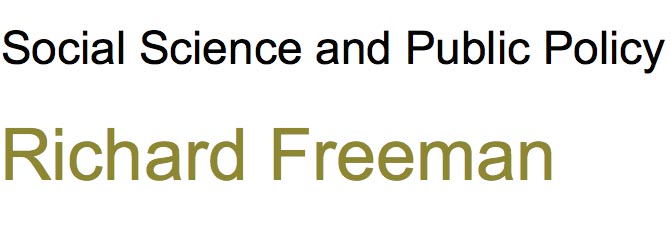 Regulation depends fundamentally upon the production and dissemination of knowledge. At a minimum, one might imagine a mechanical model of regulation which involves regulator A exerting control over the actions of actor B. But even here, knowledge is crucial, for B must know what kinds of actions A requires or considers appropriate if regulation is to occur. And A must ensure that its preferences are communicated effectively, in a form that B can comprehend and act upon. In real world situations, the knowledge problems associated with regulation are of course much more complex than this. Regulators need to have knowledge of the domain they are regulating, including the aims, interests and capacities of the various actors who inhabit that domain. Actors need to know how the regulators’ communications are to be interpreted, and what penalties they might face if they act incorrectly. And regulators and actors alike need to constantly update their knowledge of the system as a whole, and of how effectively regulation might be working to ensure that their interests are fulfilled. Regulation, in short, depends on the constant generation, circulation, interpretation and evaluation of knowledge. This chapter duly reports and discusses the findings of a study of the work of the World Health Organization (WHO) in defining the content of mental health policy in Europe.
Regulation depends fundamentally upon the production and dissemination of knowledge. At a minimum, one might imagine a mechanical model of regulation which involves regulator A exerting control over the actions of actor B. But even here, knowledge is crucial, for B must know what kinds of actions A requires or considers appropriate if regulation is to occur. And A must ensure that its preferences are communicated effectively, in a form that B can comprehend and act upon. In real world situations, the knowledge problems associated with regulation are of course much more complex than this. Regulators need to have knowledge of the domain they are regulating, including the aims, interests and capacities of the various actors who inhabit that domain. Actors need to know how the regulators’ communications are to be interpreted, and what penalties they might face if they act incorrectly. And regulators and actors alike need to constantly update their knowledge of the system as a whole, and of how effectively regulation might be working to ensure that their interests are fulfilled. Regulation, in short, depends on the constant generation, circulation, interpretation and evaluation of knowledge. This chapter duly reports and discusses the findings of a study of the work of the World Health Organization (WHO) in defining the content of mental health policy in Europe.
Source: Barroso, J and Carvalho, L M (eds) Knowledge and Regulatory Processes in Health and Education Policies, Lisbon: EDUCA
